Expressive Arts
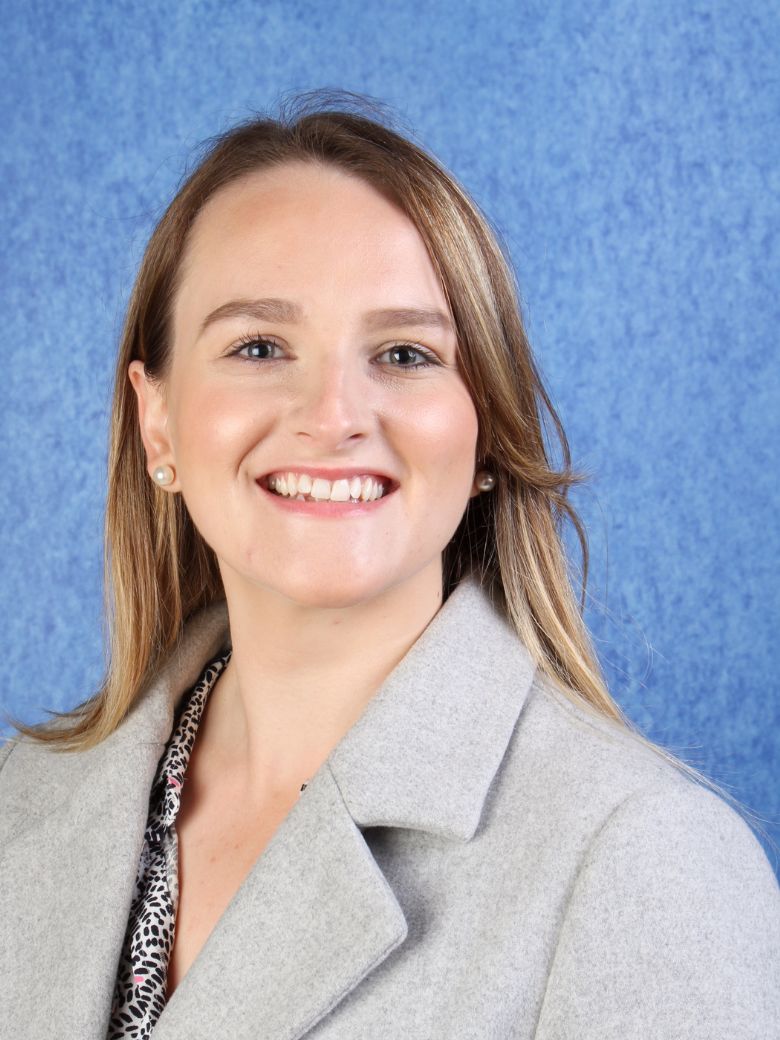
Head of Expressive Arts
Our core expressive skills – generate, create, and appreciate – coordinate our shared endeavour across Music, Art, Dance, and Drama. Through explicit teaching of observational skills, criticality, and exploration, we aim to equip students with the sensitivity and insight needed to be a successful artist, choreographer, director, or composer.
We aim to encourage students to develop a more rigorous understanding of artistic intention and craft. Students build upon their critical and evaluative skills through their exposure to a wide variety of artistic mediums – whether that’s Dance, Theatre, Music, or Art – as part of a broad Expressive Arts curriculum, to be able to listen or observe with discernment.
Overarching Department Intent
To provide a breath and depth of experience, skills and subject knowledge. To develop confidence in subject domain creativity.
Dance
KS4
KS3 Dance opportunities are through the PE curriculum and extracurricular activities such as House Dance. At KS4 we offer GCSE Dance. Our curriculum focusses on: Create: using critical appreciation skills to develop and structure choreography using a stimulus. Perform: combining expressive and technical, physical skills. Appreciate: critically evaluating a range of dance styles and repertoire from professional works. This subsequently informs the creating process, providing a tripartite feedback loop to the KS4 Dance curriculum.
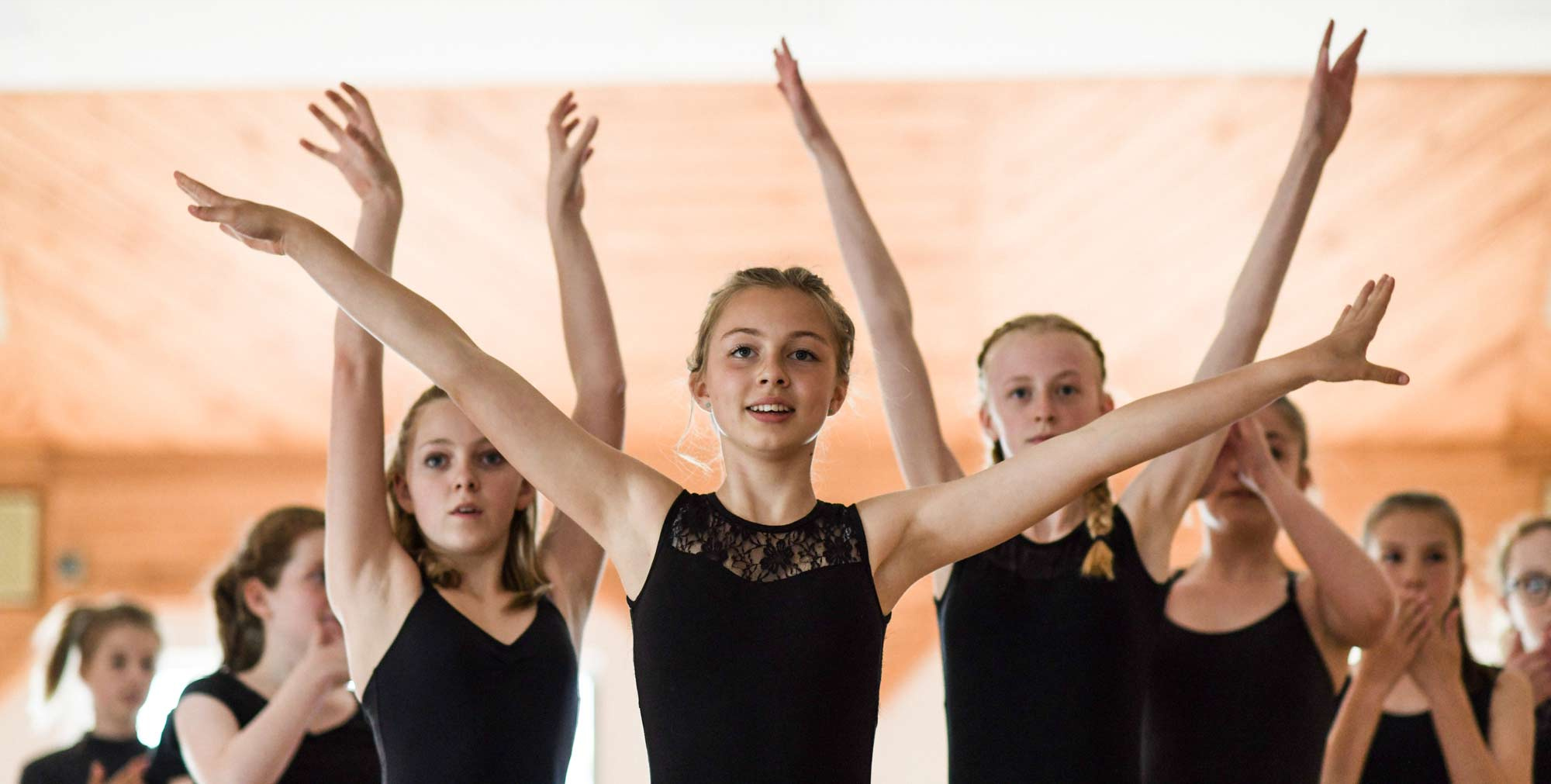
KS5
Our curriculum: Develops critical skills through more in-depth analysis of professional Dance works and Dance genres; Explores specific Dance practitioners and their techniques and style through developing their performance skills in a solo and quartet; Focusses on Choreography with a developing set of skills using a set stimulus for a group piece.
Drama
KS3
In year 7 and 8, students have the opportunity to experience and develop their drama skills through extracurricular opportunities such as House Musical, School productions, Vivid Theatre Company and through select schemes of work delivered through English.
Drama is taught discreetly in Year 9 for 1 hour per week where the curriculum, focused on Communication, Creativity and Confidence enabling students to: Explore basic acting skills, stagecraft, and styles; Collaborate to create well-organised action scenes, convincing characters, and responses to stimuli; Perform; Evaluate and Analyse. Delivered with a focus on understanding and experiencing the world of professional theatre, we also aim to develop key skills to enable our students to be successful at KS4 and beyond. Confidence building, communication, creativity, co-operation, time management are all attributes that future employers will seek.
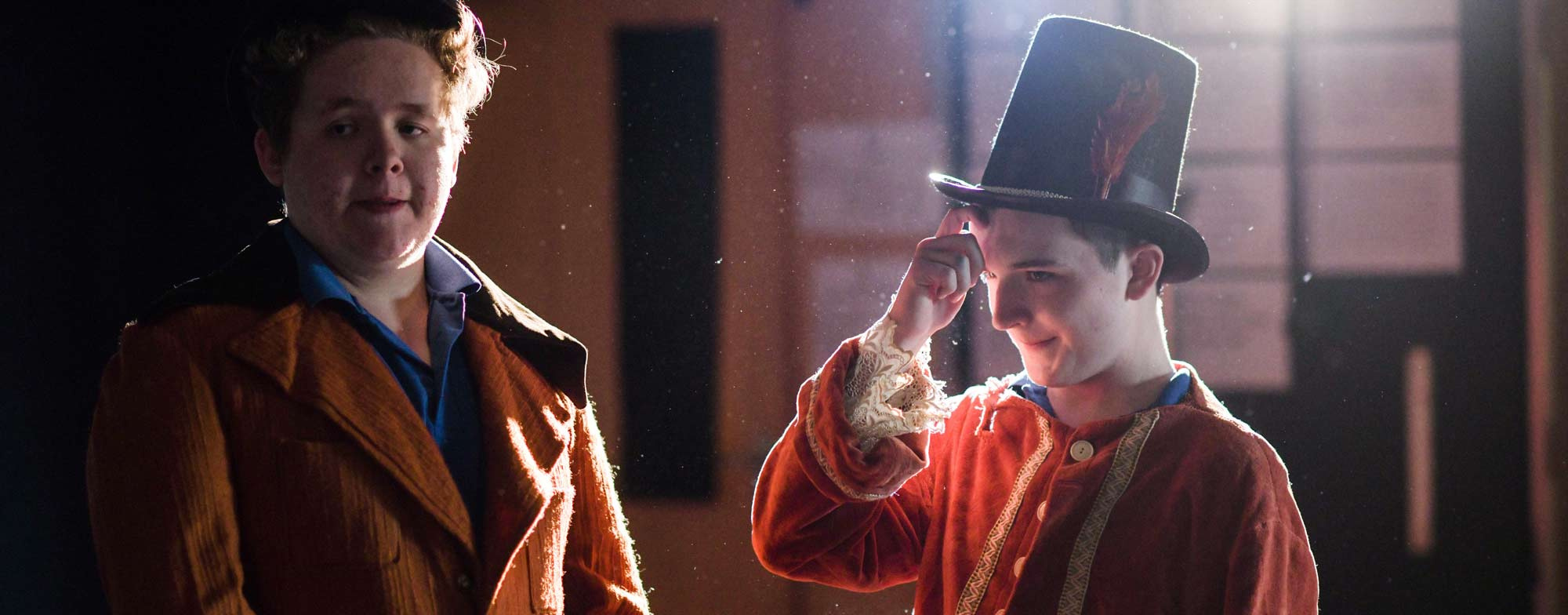
KS4
Our curriculum has four key strands. Experimentation; designing purposeful, developed intentions; Creating using a wide range of styles and/or techniques; Explore evaluation and analysis making use of design elements; Perform with rapport with other actors and a mindfulness of impact on the audience.
KS5
Create judiciously, crafting convincing artistic intentions; Perform sensitively and intellectually; Explore established techniques from practitioners and playwrights by interrogating them with detailed, critical evaluation and analysis. This tripartite approach is designed to build holistic and reflective dramatists.
Music
The King’s School Music Department aims to serve a broad curriculum that engages and inspires students. Students cover a breadth of different topics at Key Stage 3 to prepare students for GCSE level and beyond. Students are supported by teachers and professionals who have a passion for all types of music, and have broad experience of performance at the highest level.
The school has an orchestra, vocal groups, extension classes and many self-run rock and pop bands. There are many leadership opportunities throughout the year including becoming a House Musical leader, running a Music club and becoming part of the Tech Team, who provide the sound and lighting expertise for performances.
There is a positive vibe of performance at The King’s School with regular concerts, musicals, peripatetic evenings, end of term assemblies and a variety of smaller functions. This gives our budding musicians of all ages access to a wide range of performance opportunities. Students are encouraged to make positive contributions to the school’s engagements early in their secondary careers and perform to large audiences in order to foster confidence, self-esteem and a love for performance on stage.
Additional instrumental/vocal lessons: All students have the option to learn an instrument with specialist teachers at The King’s School. If your child already learns an instrument at their primary school, please contact our Teacher In Charge of Music, Mrs Mullinger, in advance of September to ensure a smooth transition and continuation of their learning.
KS3
An engaging introduction to performing, composing and appraising through a variety of genres, instruments, and music technology, developing imagination and fostering creativity.
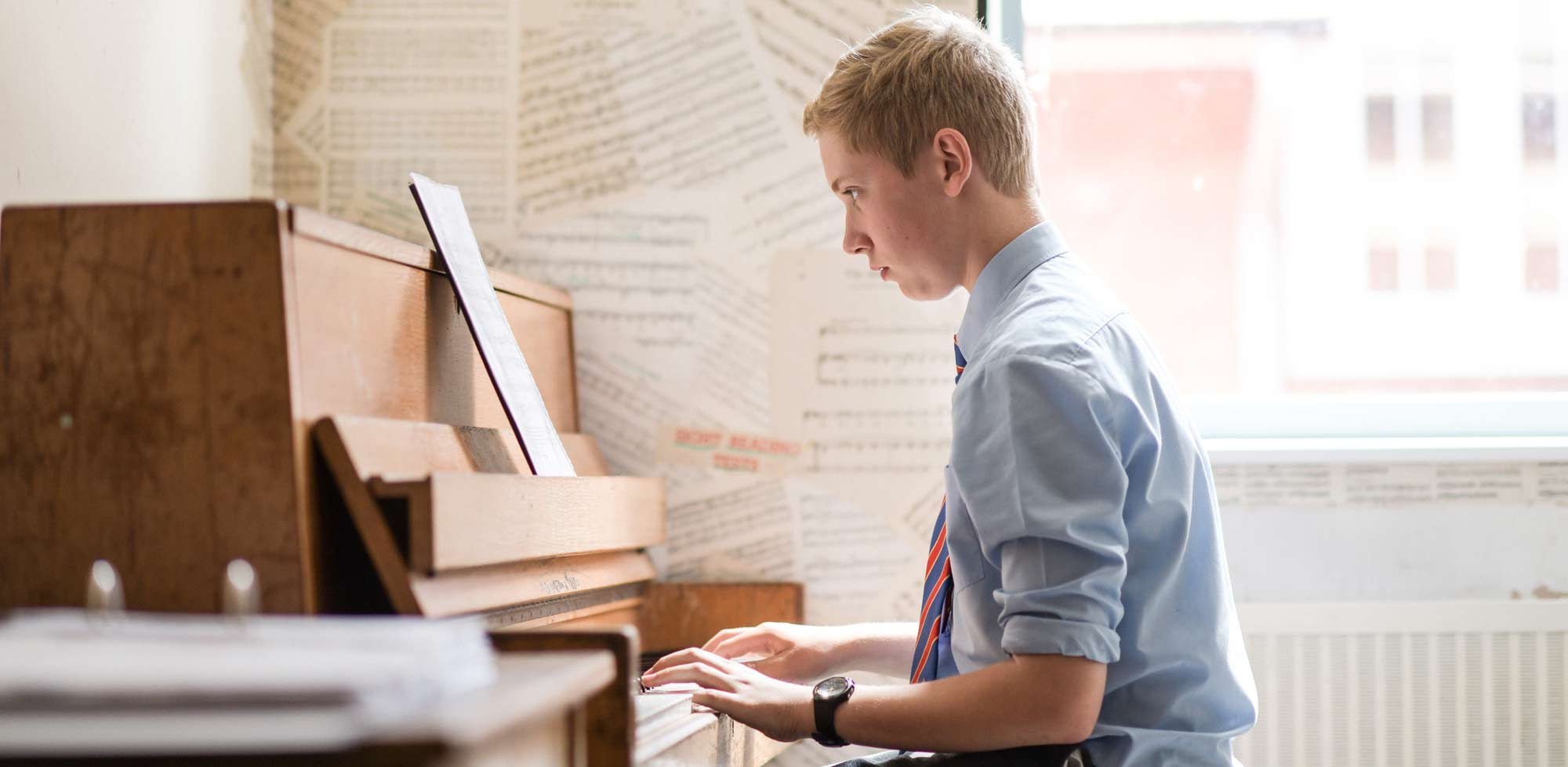
Additional support: Students may benefit from having access to a keyboard at home or using their break/lunchtimes in school to rehearse in advance of a performance.
KS4
Further develop understanding of performance, composition, and music theory to create with more confidence. This is achieved by students engaging actively in the process of music study and recognising links between appraising, performing, and composing and how this informs the development of music.
|
Instrumental Music 1700 – 1820 |
|
|---|---|
|
Vocal Music |
|
|
Music for Stage and Screen |
|
|
Fusions |
|
Careers
There are many obvious careers in Music in the areas of teaching and performing. Less obvious, perhaps, are journalism, music therapy and work in the recording industry.
Music is universally accepted by universities and colleges as an entrance qualification and many employers recognise the degree of motivation, self-discipline and co-operation with others that the subject requires.
Art
KS3
An introduction to key artististic aspects. Students will experience developing ideas, experimenting with materials and processes, recording observations, and responding to their own ideas and other sources.
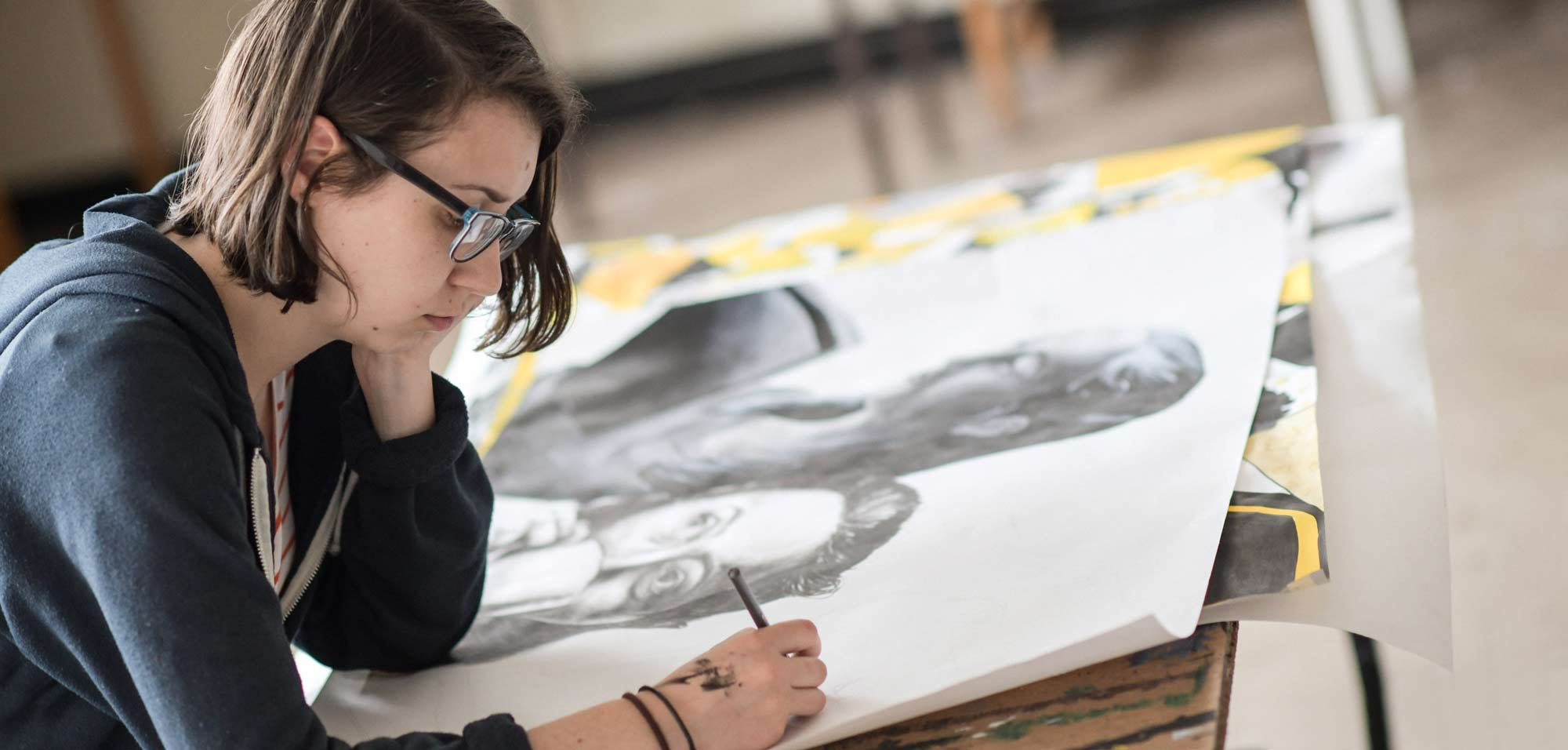
Students also have a wide range of extracurricular opportunities including art clubs, craft clubs, sketchbook circle, G&T clubs, Art’s award, set designing, visiting artists, competitions and community projects.
KS4
GCSE Art Fine Art offers a wide range of exciting and creative opportunities for all students.
Students are encouraged to become personally involved with their work and expected to show commitment to their studies. All students keep a working sketchbook.
We encourage our students to explore the visual elements and to communicate ideas and meanings. They work with traditional and new media, developing confidence, competence, imagination and creativity. Specifically, students can take the opportunity to work in photography, printmaking, painting, drawing, textiles and ceramics.
Students are encouraged to think and act as artists, craftspeople and designers, working creatively and intelligently. They develop an appreciation of art, craft and design, and their roles in the creative and cultural industries that enrich their lives.
Students reflect critically on their own and other people’s work, judging quality, value and meaning.
There are two focused coursework units (60%) where students hone their skills and independence when working through different objectives. Students continue to develop ideas, experiment with materials and processes, record observations, and respond to their own ideas and other sources. An ESA unit (40%) will conclude the GCSE course with a 10 hour supervised exam from a stimulus provided by the exam board.
KS5
Students can pick from three A Level Arts-based options - Photography, Fine Art, and Textiles Design. Year 12 builds a solid foundation in artistry, prioritising demonstration, implementation of skills, and modelling good practice. In Year 13, students apply those foundational skills in a 60% focused coursework unit and 40% ESA unit.
If you study with us, you will have access to a dedicated sixth form studio, a mac suite, darkroom facilities, specialist printmaking equipment, a ceramics area and a textiles area, to enrich your learning experience. Come and look: you will be stunned at the quality of work on offer.
Learning opportunities are not just confined to the classroom: all of our courses offer students valuable learning experiences via day excursions to various exhibitions and galleries, a bi-annual New York residential trip, as well as the opportunity to get involved with life drawing, artist workshops, competitions, performances, an annual summer exhibition and other events.
If you want to go on to Art School (many of our students do), we provide expert advice, and we will support you to produce the strongest portfolio you possibly can and take you through each step of the applications process with expertise and experience.
Course outlines:
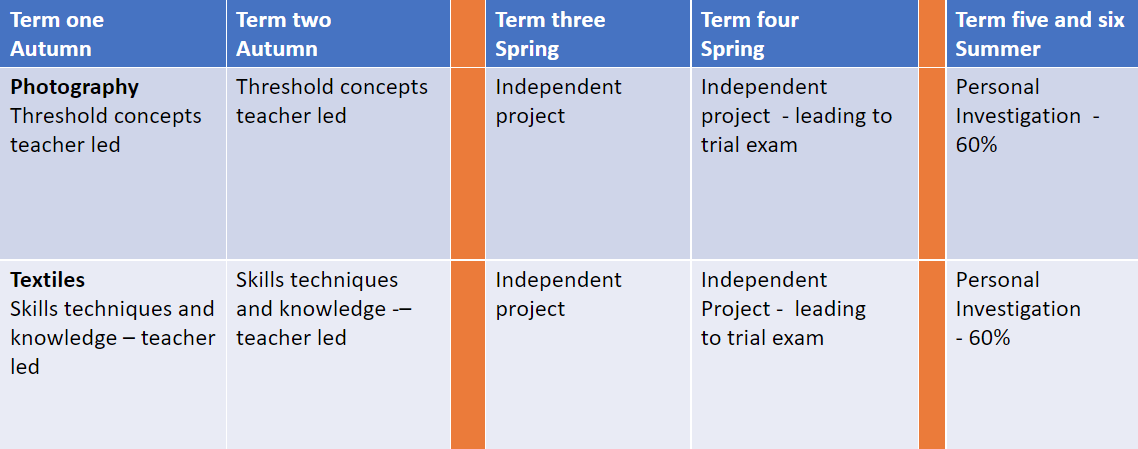
Impact
KS3:
Drama: Know key elements and how to apply them creatively when devising.
Music: Year 7 – know the key elements; Year 8 – Know how to apply them; Year 9 – Know how to be competent, independent and creative with the key elements.
Art: Year 7 – know the formal elements; Year 8 – know how to apply them consistently and know how they connect and overlap in every task; Year 9 – Know how to competently apply the formal elements to each task, be independent and creative with the formal elements.
KS4:
KS5:
Parental Support
Parents can make a huge difference to students' active observation, critical feeling, and appreciation skills by modelling detailed discussion or reflection on popular culture or any artwork, dance, drama, or music viewed or listened to on the internet, Netflix, YouTube, or in a gallery or theatre. Asking evaluation questions like 'why', 'how successfully', or 'to what extent' helps to deepen students' abilities to justify their opinions and creative responses to culture.
Super-Curricular Opportunities
EXPRESSIVE ARTS SUPER-CURRICULAR OPPORTUNITIES
|
Autumn Term 1 |
|
|
Autumn Term 2 |
|
|
Spring Term 1 |
|
|
NEA PREP. |
|
|
Spring Term 2 |
|
|
Summer Term 1 |
EXAMS |
|
Summer Term 2 |
|
